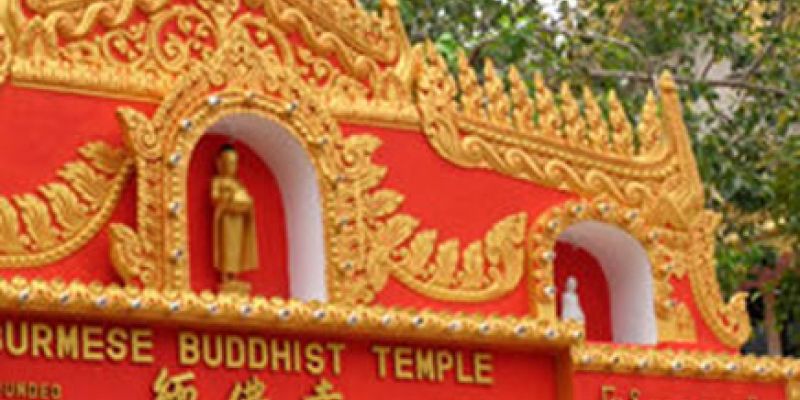
My main interfaith experiences in the Philippines were with Muslims; things in Myanmar are very different given the very large majority Buddhist population. Last year, I spent one month in a Buddhist monastery, following their schedule of prayer and work.
They only eat twice a day (last meal being taken at 12 noon). My friend, a young monk, realizing how difficult this must be for me, organized that I go each evening to the house of his mother nearby to have a meal.
One day a monk asked me why I was sharing their lives like this. I replied – in order to learn Burmese and more about Buddhism. He then asked me what I thought about Muslims/Bengalis (the words used in Myanmar for Rohingya). I shared my experiences in the Philippines, stressing that I had many friends among them there that “not all Muslims are the same or have many wives or force all entering their mosques to convert to Islam.” But despite my best efforts, he and other monks repeated that “all Muslims are the same,” “they cannot be trusted,” etc.
When I go to the mosques in Yangon or Mandalay, I find that Muslims, in their turn, are resistant or fearful of me, or any stranger. This is no doubt due to the oppression they feel from the Buddhist majority, which makes them suspicious and very tightly-knit. So dialogue with both Buddhists and Muslims in Myanmar is very challenging!
Columban Fr. Kurt Zion Pala lives and works in Myanmar (formerly Burma).


 The Columbans are a society of missionaries, including priests and lay people, who minister to people of various cultures as a way of witnessing to the universal love of God.
The Columbans are a society of missionaries, including priests and lay people, who minister to people of various cultures as a way of witnessing to the universal love of God.